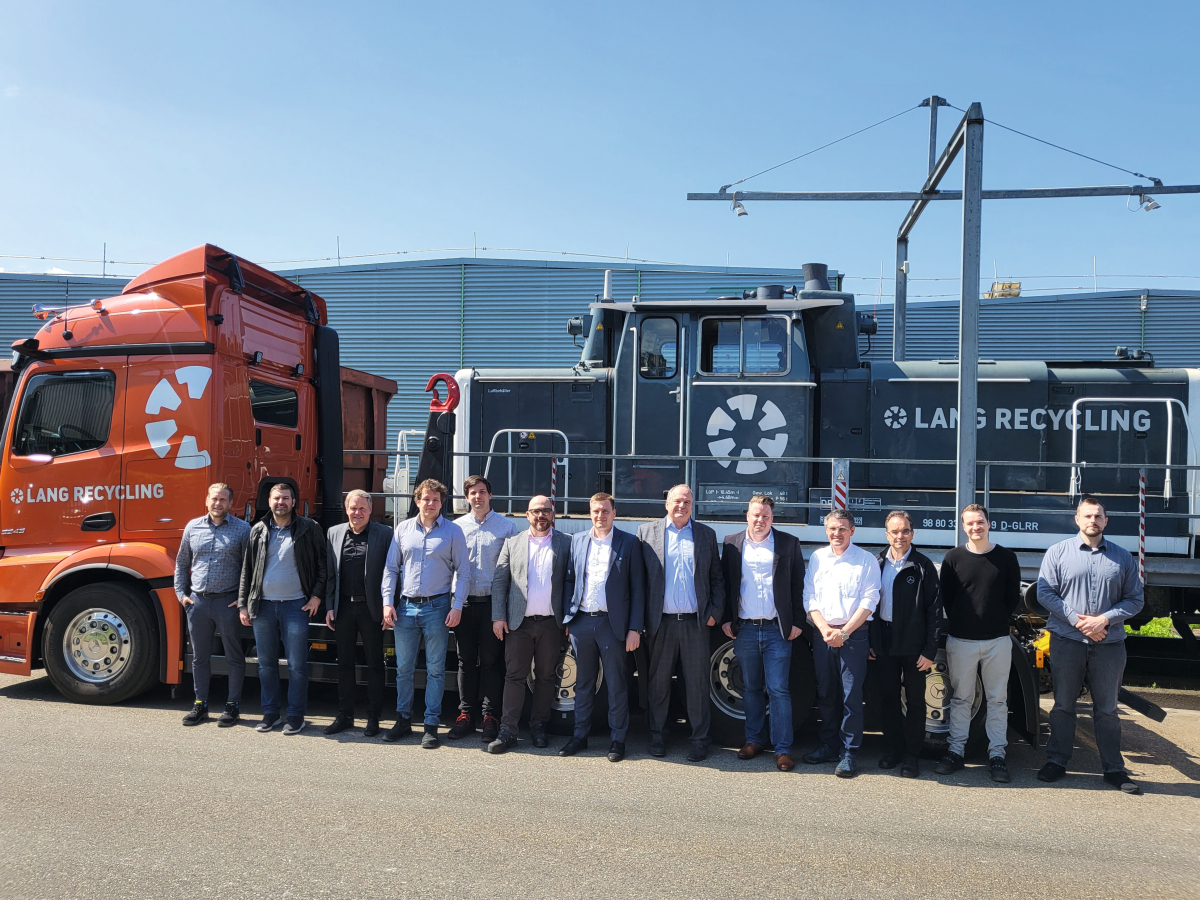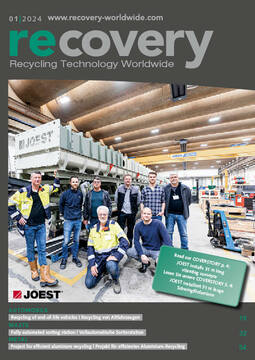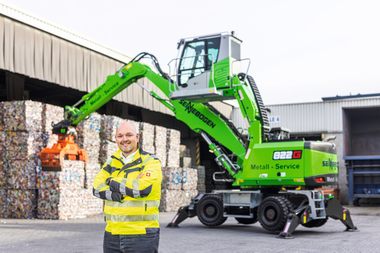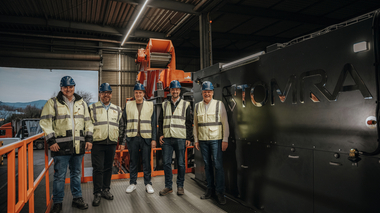New funding project for efficient aluminum recycling
Through the cooperation of research and industry, aluminum recycling in Germany is to be advanced economically and technologically over the next three years. By means of laser-induced plasma spectroscopy (LIPS), important resources can be saved in the future and an economical closed-loop system for aluminum new scrap recycling can be established.
 The project partners will soon be ensuring more aluminum recycling in Germany and are supported by the German Federal Ministry of Economics
The project partners will soon be ensuring more aluminum recycling in Germany and are supported by the German Federal Ministry of Economics
© Lang Recycling
Low density, high corrosion resistance, good properties for hardening, forming and welding – because of their diverse mechanical properties, aluminum or aluminum alloys are a widespread and important material, not only in the automotive industry. However, the production of aluminum or aluminum alloys is very energy- and resource-intensive. Six partners in research and industry have jointly initiated the project “circular system for functional aluminum new scrap recycling from automotive production using LIPS” (KANAL), which is supported by the German Federal Ministry of Economics and Climate Protection (BMWK) with a budget of 1.8 million €. The aim of the collaboration between research and industry is to recycle aluminum scrap economically and sustainably, thereby increasing the proportion of secondary aluminum used in production.
Pilot plant in Gaggenau
The innovative pilot plant will be set up at Lang Recycling in Gaggenau and tested in the upcycling process. The company deals in new aluminum scrap, which is analyzed and sorted with the help of LIPS. In particular, alloys with magnesium and silicon alloy components will be reliably detected and separated. „As recently as the 1990s, aluminum alloys with various alloying metals such as copper, magnesium or silicon were considered unrecognizable and thus not worthy of high-quality recycling. Thanks to the development of spectroscopic analysis, we are now on the threshold of the economic industrialization of such a separation approach,“ says a delighted Andreas Hatz, technical operations manager at Lang Recycling.
Profit for the environment and industry
With the LIPS analysis technology, Lang Recycling can analytically determine aluminum scrap in a short time using laser pulses and then separate it according to alloys. The alloy-grade aluminum thus obtained can then be returned to the cycle and used in primary production.
Until now, one problem with recycling mixed aluminum waste has been material separation. „Our joint project aims to reuse the sorted aluminum scrap in primary production. This translates into approximately 95 % energy savings compared to virgin extraction. In addition, the need for bauxite, an important ore required for new aluminum production, will be drastically reduced,“ says Maximilian Lang, a member of the management team at Lang Recycling.
An initial goal of the project is to reliably sort aluminum with magnesium or magnesium and silicon alloys (5xxx/6xxx alloy). Furthermore, a throughput of 5 t/h in high quality is to be achieved in order to also ensure the economic efficiency of the sorting process. In a second step, sorting will be extended to other aluminum alloys.
Aluminum consumption in Germany
on the rise
A large proportion of the aluminum consumed in Germany is used in the automotive and aerospace industries. In the automotive industry in particular, there is still a great deal of potential for recycling used aluminum and making an important contribution in terms of sustainability. The Association of German Metal Traders and Recyclers (VDM) expects demand for aluminum to rise sharply in the coming decades. Electric cars, wind turbines, power lines - there is a large amount of aluminum in use in various industries. A plant like the one at Lang Recycling could significantly reduce the consumption of ores and energy, while at the same time saving many tons of the climate-damaging CO2.
The alliance of Lang Recycling, Pforzheim University of Applied Sciences, the engineering firm Jeanvré, and the technology supplier TOMRA, is joined by other partner companies, including Novelis, one of the leading manufacturers of flat-rolled aluminum products. Together they encompass the entire aluminum value chain. Thanks to the partners‘ broad positioning, the complete closed-loop recycling of lightweight aluminum components can be field-tested and optimized in Germany. The partners are confident that their project will make an important contribution to the development of a climate neutral German economy by the year 2045.




